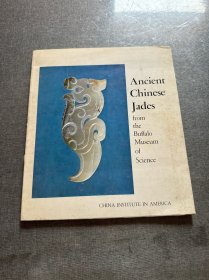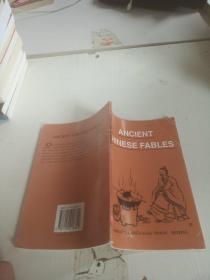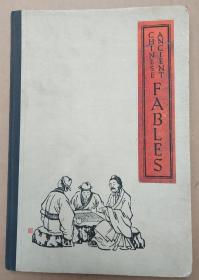
Ancient Chinese Who Left Their Marks on History
原版英文
¥ 18 3.1折 ¥ 59 九品
仅1件
作者Zhang Ciyun(张慈贇) 著
出版社上海译文出版社
出版时间2015-08
版次1
装帧精装
上书时间2024-09-27
- 在售商品 暂无
- 平均发货时间 8小时
- 好评率 暂无
- 最新上架
商品详情
- 品相描述:九品
图书标准信息
- 作者 Zhang Ciyun(张慈贇) 著
- 出版社 上海译文出版社
- 出版时间 2015-08
- 版次 1
- ISBN 9787532768905
- 定价 59.00元
- 装帧 精装
- 开本 32开
- 纸张 胶版纸
- 页数 352页
- 字数 294千字
- 正文语种 英语
- 丛书 Ancient Chinese Wisdom
- 【内容简介】
-
了解一个国家,即是了解此国的人。在本书中,你将一览中国历史长河,认识曾在哲学、艺术、文学、宗教、科技和政治等领域留下深深烙印的88位重要人物。
To understand a country is to understand its people. In this book, we will take you on a tour through the long history of China to recall the life story of 88 important figures who left their personal marks in philosophy, art and literature, religion, science and technology and political movements.
- 【作者简介】
-
张慈贇,国内资深英文媒体人,高级编辑,享受国务院政府特殊津贴。自1980年起,参与《中国日报》创办,曾任中国日报社常务副总编辑。主持《北京周末报》、《上海英文星报》的创办,均为第一任总编辑。1996-2011年任上海市人民政府新闻办公室副主任,1999年创办《上海日报》社,任总编辑至2013年。现为中国翻译协会常务理事、上海翻译家协会副会长、《东方翻译》主编、上海外国语大学新闻传媒学院客座教授等。
主要译作:《聊斋志异》(外文出版社,1995,合译);《香港特别行政区基本法(草案)》(1988,合译);《翻译服务规范》(起草委员会成员/组长/英文定稿,中国标准化出版社,2004-2006);《中美关系史(1945-1949)》(资中筠著,美国哥大出版社,1991);《法国大革命的历史启示》(张芝联著,北京大学出版社,1989);《中国弹拨乐演奏》(马楠著,人民音乐出版社,1989);《中国教育法》(中译英,高教出版社,1986);《一个女记者的传奇》(英译中,新华出版社,1986,合译)等
Born in Shanghai in 1949, ZHANG Ciyun (Peter) graduated from Jilin Normal University, PRC with a major in English and later from Stanford University in the United States with a Master’s Degree in Journalism. Since 1980, he has worked for several newspapers and magazines in both Beijing and Shanghai. Also, he once served in the General Office of the Ministry of Communications as an interpreter and the Information Office of Shanghai Municipality as its Deputy General Director.
An acclaimed translator, reporter and editor, Mr. Zhang has helped bring into existence four English-language newspapers on the Chinese mainland, namely, China Daily, Beijing Weekend, Shanghai Star and Shanghai Daily. He is now the Editor-in-Chief Emeritus of Shanghai Daily and an executive council member of Translation Association of China. He has translated and co-translated more than a dozen books and a large amount of documents, including Strange Stories of Liao Zhai Studio and the English version of the Basic Law of the Hong Kong Special Administrative Region. He has also published many English and Chinese articles and theses in newspapers and magazines both in China and overseas.
- 【目录】
-
司马相如 (circa 179 – 118 BC) The poet who eloped
司马迁 (circa 145 – 90 BC) Historiography father
曹植 (192 – 232 AD) The poetical prodigy
王勃 (649 – 676 AD) Brief life, lasting fame
陈子昂 (661 – 702 AD) Tang poetry’s pioneer
李白 (701 – 762 AD) The ‘God of Poetry’
杜甫 (712 – 770 AD) Suffering poetry saint
苏轼 (1037 – 1011) A rare, versatile scholar
李清照 (1084 – 1151) Ci’s finest female poet
陆游 (1125 – 1210) The patriot of poetry
辛弃疾 (1140 – 1207) Lyric poet and patriot
关汉卿 (1225 – 1302) China’s own Shakespeare
施耐庵 (1296 – 1370) Author steeped in mystery
吴承恩 (circa 1501 – 1582) Man behind Monkey King
曹雪芹 (circa 1715 – 1763 or 1764) The author of a great classic
玄奘 (circa 602 – 664 AD) A great Buddhist monk
惠能 (638 – 713 AD) Rustic patriarch
鲁班 (circa 507 – 444 BC) Legendary master carpenter
孙武 (circa 535 – 480 BC) Winning ways of ancient strategist
扁鹊 (circa 407 – 310 BC) The first physician in China
蔡伦 (circa 61 – 121 AD) Paper trail leads to eunuch Cai
张衡 (78 – 139 AD) Inventor of the seismometer
张仲景 (circa 150 – 219 AD) Plague prompts doctor’s work
华佗 (circa 145 – 208 AD) A pioneering Chinese surgeon
祖冲之 (429 – 500 AD) An early Chinese star of astronomy
贾思勰 (end of 5th century – mid-6th century) Scribe of guide to farming
郦道元 (circa 470 – 527 AD) Water writer plumbs new depths
孙思邈 (circa 581 – 682 AD) The ‘King of Medicine’
毕昇 (970 – 1051) Inventor of the world’s first movable type technology
沈括 (1031 – 1095) China’s great scientific mind
黄道婆 (circa 1245 – 1330) Granny’s great innovations
李时珍 (1518 – 1593) Saint of medicine and scribe of herbs
徐光启 (1562 – 1633) City’s son introduces European science
詹天佑 (1861 – 1919) Father of China’s railways
王羲之 (303 – 361 AD)Sage of Chinese calligraphy
顾恺之 (348 – 409 AD)Originator of Chinese painting
吴道子 (680 – 759 AD)Painter’s death a tall tale
郑燮 (1693 – 1765)An eccentric painter who’s ‘occasionally muddle-headed’
管仲 (circa 720 – 645 BC)Leading reformer
项羽 (232 – 202 BC) A prideful, tragic hero
王昭君 (circa 52 – 20 BC)A beautiful lady helps keep peace
商鞅 (390 – 338 BC) A great statesman and political reformer
陈胜 (? – 208 BC) Leader of first peasant rebellion
诸葛亮 (181 – 234 AD)A godlike prophet
关羽 (160 – 219 AD) Lord Guan revered for his bravery
魏征 (580 – 643 AD) Candid official earns great respect
鉴真 (687 – 763 AD) Monk spreads the word in Japan
包拯 (999 – 1062) Iconic official who’s incorruptible
王安石 (1021 – 1068) Statesman with a gift for writing
岳飞 (1103 – 1142) A peerless general and national hero
文天祥 1236 – 1283) Hero stays loyal to the bitter end
郑和 (1371 – 1433) Did the admiral discover the New World?
海瑞 (1514 – 1587) Moral official dares to criticize emperor
戚继光 (1528 – 1588)‘Tiger General’ stops Japanese pirates
徐霞客 (1586 – 1641) Intrepid explorer keeps a meticulous diary
郑成功 1624 – 1662) A national hero who recaptures Taiwan
李自成 (1606 – 1645) Shortsighted military genius
林则徐 (1785 – 1850) Patriotic official fights the opium trade
龚自珍 (1792 – 1841) A reform-minded official and poet
李鸿章 (1823 – 1901) Powerful official invites controversy
严复 (1854 – 1921) Educator pushes for modernization
康有为 (1858 – 1927) Reformer tries to change China
蔡元培 (1868 – 1940) Educator supports civil rights movement
陶行知 (1891 – 1946) A great educator and reformer
黄帝 (The Yellow Emperor reign 2697 – 2597 BC) Father of this great civilization
大禹 (circa ? – 2062 BC) Taming the long and wild rivers of China
秦始皇 (259 – 210 BC) The ‘First Emperor’ of China
刘邦 (256 – 195 BC) Founder of the powerful Han Dynasty
汉武帝 (Emperor Wu of Han 156 – 87 BC) Insatiable ambition for territorial expansion
曹操 (155 – 220 AD) Speak of his name and he arrives
李世民 (599 – 649 AD) Creator of a dynastic golden age
武则天 624 – 705 AD) The only empress regnant in China’s history
成吉思汗 (Genghis Khan 1162 – 1227) Founder of the world’s largest empire
朱元璋 (1328 – 1398) From a beggar to an emperor
康熙 (Emperor Kangxi 1654 – 1722) Longest reign brings prosperity
慈禧太后 (Empress Dowager Cixi 1835 – 1908) Mysterious ‘Queen without a Crown’
相关推荐
-

ANCIENT CHINESE ARCHITECTURE
全新广州
¥ 94.02
-

ANCIENT CHINESE ARCHITECTURE
全新广州
¥ 94.02
-

ANCIENT CHINESE ARCHITECTURE
全新广州
¥ 96.02
-

ANCIENT CHINESE ARCHITECTURE
全新广州
¥ 96.02
-

ANCIENT CHINESE ARCHITECTURE
全新无锡
¥ 92.77
-

ANCIENT CHINESE ARCHITECTURE
全新北京
¥ 102.62
-

ANCIENT CHINESE ARCHITECTURE
全新天津
¥ 94.22
-

Ancient Chinese Jades
八五品上海
¥ 560.00
-

chinese ancient fables
八五品上海
¥ 55.00
-

ANCIENT CHINESE FABLES
八五品北京
¥ 50.00
— 没有更多了 —
















以下为对购买帮助不大的评价